|
"Bitchass niggers," he opined, with fervor. "What I look like? Scared uh me, huh? You got a phone? Phone, you got a phone?" He was asking everyone, and nobody was going for it. Everyone had an excuse. They were about to get off. Their charger was out. He wasn't happy about it. "Step on it, Nate," one of my regulars whispered. "Can't believe it. Ah got an emergency and nobody wanna lemme use their phone. I look like Freddy Krueger up in here?" He was long-faced, tall and healthy, hair tied back above a Helly Hanson jacket. No, he didn't look like Freddy Krueger. I called out to him, to distract him from the others. "You want me to call somebody?" "What?" "You want me to call somebody? If you need a phone, I could call somebody?" "Could I use it?" "No, I mean the cops! You said it's an emergency, I could call the cops!" "It is an emergency, I don't need to call the cops!" "I could call supervisor, or the cops, that's the best I can offer." "Try to call my girl so she could pick me up and make it to [unintelligible]." There was a desolation in his tone which spoke louder than his words. He felt worthless and ignored. That was the true source of his anger, not the business about a phone. He looked around, incredulous. "Black man tryna ask for a simple phone." This wasn't a black-white race issue; we were south of Orcas. Everybody onboard at this point is either African or African-American. "Bunch of brothers up in here don't even give a shit, act like I'm Freddy Krueger or some shit, like I got a fuckin' Halloween mask on. Fuckin' Ghostface. Yeah, you too, I don't give a fuck! Ackin' up like I'm a rapist or somethin'?" Sure, his current attitude wasn't doing him any favors, but we have the right to cry out in a room where no one listens. His dilemma involving his girlfriend may not have been an emergency, but the sociocultural dynamic he was currently being subjected to… that was absolutely a crisis, and an endemic one. His frustration was warranted. I felt for him. Initially I'd considered him merely a harassment to other passengers, but his exasperation reminded me of the words of another man, worth quoting in full: "There are very few African American men in this country who haven't had the experience of being followed when they were shopping in a department store. That includes me. There are very few African American men who haven't had the experience of walking across the street and hearing the locks click on the doors of cars. That happens to me -- at least before I was a senator. There are very few African Americans who haven't had the experience of getting on an elevator and a woman clutching her purse nervously and holding her breath until she had a chance to get off. That happens often." That's Barack Obama talking. Our boy on the route tonight was reliving the very same. Eventually he stalked up to me. I'd greeted him and given him a free transfer upon request as he entered, a small modicum of kindness which was more than anyone else had offered; I think at this point there just wasn't anyone else to talk to.
I said, "I'm sorry they're not workin' with you, man." "Naw, I'm just upset these muhfugguhs act like ah'm some ape when ah ask to use they phone. Fo' a split second. Piece uh shit muhfugguhs tell me my phone got turned off, my phone dead, my phone back home, bitchass mothafuckas say all that like I'm scary. Black man. To a black tall handsome young brother." "You're an all right dude, I'm sorry they're givin' you that energy." "I know'm just scary, you know me, bro. Black folk with a gun. Seven eight black folks on this bus won't… They gon' tell me they ups and downs. 'Bout why they won't let me use they phone. That's bullshit right there." He surveyed the crowd. "Got nowhere to go. Homies. Bums. I'm sorry, man." "Oh, it's cool, man, it's all good." "Man, I'm so mad right now. If one of these mothafuckas got a phone right now they should let me use they phone. 'Specially they actual black. My people, niggas givin me stories and shit. Talkin' 'bout they phone this, they phone dead, they phone that. Must have a crack rock or something, or fuckin', a meth pipe or somethin', some black people…." "I'm sorry man, I know you're an all right dude, I've seen you around." "Yeah." "You're okay." "Muhfuggahs… I'm sorry. I'm jus' havin' a bad day, bro." "No, I hear that, I hear that. It's good to vent it out, you know? Good to vent it out." "Blockin' me out and shit, for no reason. Lookin' at me like aw, just because I'm a– fuck! Now I gotta walk right– naw, I can't ask you that, to let me off right here, cause tha's not your job and you're too cool of a bus driver for me to–" I made the decision somewhere in the middle of the left turn, as we pulled into the last stop in Rainer Beach. Now, I'm not suggesting you do what I did next: I've got an unfair advantage. I'm a proud owner of the basically worthless (and legitimately awful) Samsung ZTE Zinger, a cell phone with a resale value of approximately $25; normally I carry Samsung's fabulous 2006 T309 flip phone instead, worth even less. I can appreciate resistance to lending expensive items to strangers, but in my case it's not particularly relevant. "You're an all right dude, man. I do have a cell phone if you would like to use it." "Aw, oh, oh, oh, oh. Man, are you serious?" "I'm serious man, all I gotta do is pull over. Just couldn't do it while we was drivin' the route." "Man, you probably the coolest bus driver ah ever met. In all my twenty-seven years on this urf. You cool. I'm just disappointed in these people right here." "Folks are supposed to look out for each other!" "That's right! Thank you!" --- The Obama speech linked above is my second favorite YouTube video of all time. It marked his first real direct address on race, and his sober, measured consideration of the words I find mesmerizing. Whatever your political leanings, we have to concede we won't be hearing speeches this good for a while. For a quick historical grounding and context on basically every aspect of interaction in this scene, refer to my post below, Don't Be Scared of My Friends, Part I.
0 Comments
Perhaps you know of the famous (but not famous enough) loophole in the Thirteenth Amendment. It states that no person in the U.S. can be subjected to slavery unless they are a criminal. During the Reconstruction period following the Civil War and the liberation of slaves, the driving economic juggernaut of the American South was suddenly and instantly deprived of a workforce. They were deprived because of a law that had a loophole. Meanwhile, four million newly freed slaves without money, education, or credentials had no idea or means for how to proceed forward.
Did we really think anything else was going to happen? Of course landowners and their associates took advantage of the loophole and began conducting mass arrests. Their own livelihoods were at stake. All you had to do was arrest these folks, and you had your labor force again. But how to apprehend innocent people, we might ask? By demonizing them. Not difficult in a society which didn't consider them human in the first place. The process of creating a link between black people (specifically black men, more attractive as laborers) and criminals began early. We talk today about disproportionate media portrayals in music and television, but the association runs far deeper. Fear is the easiest way to mobilize a nation, and although the statistics of rape have little to do with interracial crossover*, the decision to characterize the black male as a source of fear for white women was particularly effective in the family-oriented composition of the Antebellum South. An ugly myth was born then that, incredibly and despite massive cultural upheavals since, has lost none of its potency. Nixon's creation of the language of a "war on drugs," by now a ubiquitous term, marked the birth of addressing drugs in America as a criminal issue rather than a health issue– an awkward fit initially, but one we hardly think to question now. Only last year did the damning words of Nixon's high-level aide John Erlichman finally come out, in which he admitted that the decision to characterize black people and hippies as rampant drug users was a consciously engineered move intended to minimize the political movements of both. "We knew we couldn't make it illegal to be either against the war or black, but by getting the public to associate the hippies with marijuana and blacks with heroin, and then criminalizing both heavily, we could disrupt those communities…. Did we know we were lying about the drugs? Of course we did." Although Nixon came up with the idea of linking blacks to drugs and drugs to crime, it was Reagan who actualized these notions into larger realities with accelerated programs and attention, and Clinton who militarized and greatly expanded the means for capture and incarceration in the mid-nineties. Clinton would later realize the error of his ways and publicly apologize, but the damage had been done by Three Strikes, Mandatory Minimums, and other policies. Felons have severely reduced opportunities in society for jobs and housing, stigmatized standing in society, and can't vote. Like slaves. The economic incentive to arrest black men hasn't disappeared so much as shifted. The cotton industry no longer needs them, but what about the prison-industrial complex? What about contracted prison labor (ever wonder what "made in the USA" means?), surveillance technology vendors, prison food service and hospital giants, immigration detention, attorneys, lobbies, probation organizations and more? In a profit-oriented society, getting rid of a workforce that doesn't need to be paid salary, benefits, medical, or vacations, while also generating revenue for multitudes of ancillary industries, would be a catastrophically bad financial move. Like freeing the slaves. I'm only scratching the surface here. Suffice it to say that the need to arrest people is critical for this industry to survive as is, and a century and a half of calculated demonizing of a certain race and gender group has led to that demographic being the folks who get the short end of all this. Have you ever wondered why there are now so few larger-than-life, internationally famous, educated black intellectuals like Dr. King, Huey Newton and Malcolm X? We stop asking that question when we remember that 1 in 3 black American men will go to jail, and that while black males comprise 6.5 percent of the country's population, they're 40.2 percent of the incarcerated population. Yes, slavery ended a long time ago. Or did it? I'm not sure it's been communicated quite clearly enough exactly how hard it is to be black and male in America. In our culture, it is difficult to be old, poor, sick, black, female, Muslim, or gay. All of us will be at least two of those at some point or another, but some people have to be most of those things. It isn't easy. The challenge of being black, however, is arduous in an especially public way, a self-reflexive and humiliating way. The history is there, writ silent and large. You get judged by what you remind people of, and what you remind people of has been crafted by others, decades and centuries ago. Forget the already debilitating potential of broken families, poverty and poor education. Those are easier to imagine. But being on the receiving end of fear and hate, for a lifetime, is its own special kind of torture, insidious, permeating in possibility to all action, all thought. You know my friend Leroy, and the story of how we met. He told me of a recent incident he experienced on the bus. Picture him now, decently dressed, clean sweatshirt and fitted jeans, well-spoken when he needs to be, composed and quiet for now. He got on and sat down in the middle of the artic coach, on the side-facing seats above the middle wheel. It's a lounge-like environment there, where the seats on either side of the aisle face each other. The moment Leroy sat down, a white woman with headphones a couple of seats away immediately got up and moved to the front of the bus. That's not a major incident. But when it happens to you regularly for the duration of your active life, it is. It gnaws at you, and the gnaw becomes part of you, the weight and frustration and doubt looming as a Sisyphean burden never lifted, only absorbed, percolating ever deeper. The final tragedy is when you believe those things about yourself, your own people. The more ubiquitous something is, the more invisible it becomes. Who's there to disagree with you, after all? "The treason of the artist [is] a refusal to admit the banality of evil and the terrible boredom of pain," Ursula K. Le Guin wrote. The evil we're discussing isn't exceptional or unique. It's humdrum, ordinary, common. Invisible. Smile, as you smile at anyone. Nod, without fear. You have no idea the difference you're making. --- Further reading: The black-as-criminal stereotype didn't dominate until the Reconstruction Era. Stereotypes pre-Civil War leaned instead toward slave-as-obedient/ignorant/docile. More from Dr. David Pilgrim, Sociology Prof at Ferris State: The Brute Caricature. The Seventies: Report: Aide says Nixon's war on drugs targeted blacks, hippies (CNN) A Brief History of the Drug War (Drug Policy Alliance). "Reader's Digest" runup of trajectories 1960-present. The Eighties: How Ronald Reagan's Drug War Fueled Americans' Addiction to Racist Ideas. Excerpt from Ibram Kendi's ambitious, National Book Award-winning 600-page tome, Stamped from the Beginning: The Definitive History of Racist Ideas in America. Excerpt contextualizes the Reagan Administration's choices during a time when drug crime was actually in decline, alarming an initially uninterested public, and conflating the "dangerous unemployed neighborhood" concept into the "dangerous black neighborhood." 'Just Say No': How Nancy Reagan Helped America Lose the War on Drugs The Nineties: Bill Clinton renounces his 1994 crime bill (The Hill) Bill Clinton says he made mass incarceration issue worse (CNN) 20 Years Later, Parts Of Major Crime Bill Viewed As Terrible Mistake (NPR) Prison Industrial Complex Masked Racism: Reflections on the Prison Industrial Complex. Angela Davis' landmark 1998 article, where she first coined the term. The Prison-Industrial Complex (The Atlantic). 1998 overview with case histories. And, your chance to read the #1 Amazon Bestseller in... criminal procedure & law! The New Jim Crow: Mass Incarceration in the Age of Colorblindness, by Michelle Alexander. (Oscar-nominated!) Documentary: 13th, by Ava DuVernay (Selma). Rape *88 percent of rapes involve a victim and offender of the same race, and 7 out of 10 rape offenders know the victim. Bureau of Justice Statistics Executive Summary: An Analysis of Sex Offenses and Sexual Assault: An Analysis of Data on Rape and Sexual Assault. More statistics on sexual violence here, courtesy of RAINN. Resources: https://helpingsurvivors.org/ I can't help but see the above as a calculated decision. And let me tell you, I rather love it.
It's inauguration day. The country's second appointed president* is starting his first day in office. I stood in front of a small stand at an Asian market and surveyed a collection of national papers. All had large cover stories with something to do with Trump. The New York Times had an image recalling earlier pictures of Chairman Mao prior to the Great Leap Forward: a large, intimidating figure in a knee-length coat, backed on both sides by military men, with the headline "Trump Takes Power…," rather than a line about his being the new American President. I found it appropriate. Even better, though, is our paper above. A new U.S. President is being inaugurated into office, and the front page is something about emojis and restaurants. Now that's bold. Just a side column with a smallish picture and the word "pomp" instead of any notable mention of his name. Ah, yes. Today's headlines on Seattletimes.com, too, aren't about Trump's speech yesterday but rather about the historic marches taking place worldwide today. Say what you will about The Seattle Times. They've been out of step with the city's thinking before, but I find this quite impressive. I've told many people that news networks will love the next four years. There is so much money to be made off of a person of his temperament and lack of experience holding the world's most powerful office. And it is important to write about what happens, but not to give him more press for no reason. This isn't turning a blind eye; it's choosing to focus on something more worthwhile, more culturally edifying, more enlightening than a fluff piece on an aspirant despot in the moments before he takes action. It's a slap in the face to what the president wants: coverage, coverage, coverage. Instead, we get an article about an unfair emoji-based grading system for restaurant food safety– as a front page banner headline. When Trump actually starts doing things, coverage will be necessary.** But I'd like for us to remember a moment when it wasn't quite yet, and our paper had the audacity and integrity to deviate from the expected status quo. Bravo, I say. As for the nationwide silent marches and worldwide support of them (in the form of even more women's rights support), today's voices will be recorded as historical. The figures are already staggering. We in Seattle can take pride in many things. Among them is the editorial choice of yesterday's front page. Or the fact that Washington State had the highest number of faithless electors in the last-ditch attempt to disqualify Mr. Trump's presidency. Or the fact that today, Seattle is expected to be among the largest of the protests in the country, third only to Washington, D. C. and Los Angeles. As the organizers of today's Seattle march have stated, the point of today's march is channel fear and anger into unified action. Historians will eviscerate the political decisions being made now. They will not look kindly on our time. But they will not chide us, the people, for going quietly into the night. We lived in a country where we, at the very least, could express our refusal to tolerate hate, prejudice, misuse of power. And by God, did we do so. --- *Hillary Clinton won the popular vote by 2.9 million. **Meryl Streep eloquently opined about the need for journalists to tell the truth during this presidency. How did the new president respond? By bashing Streep on Twitter. CNN this morning compared the Trump inauguration crowd to the Women's March crowd. How did Trump respond? By tweeting a demand that his crowd not be compared unfavorably, and that the National Park Service halt tweeting entirely. Yolanda's got spirit. Some folks in middle age dress their age, and others dress their personality. She does both. Here she is, in knee-high boots, pink pants, a black vest and coat, with a pink beret to top it off. She's briefly mentioned in the Black Lives post; a regular rider with a degree in law and currently working several entry-level office jobs. Her great hope is to land a single, steady, 9-5 gig, rather than a hodgepodge of morning and swing shifts. I'll see her at 10 P.M., rushing home to get up all over again at 4 A.M. She'd recently applied to a position she was excited about, and I was anxious for an update.
"So what's the scoop??" "No, I didn't get it!" "What?" Her tone is gravelly, but always with a hint of humor, the winking echo of a voice on the verge of cracking a joke. Don't you love the timbre of a voice that's seen a lot of life? "So Wednesday," she continues, "remember she calls my supervisor," "Yeah," "So Thursday I emailed her like okay, I'm just checkin' up on the position," "Sure, doin' your thing," "Friday afternoon she calls me I'm gettin' my hair washed at the Beauty Salon, I'm like wait a minute I know that number, so I–" "Yeah." "–answered it. And she's like, yeah I just wanted to let you know, we chose another candidate." "Awwh! No!" "And I din't know what to say! I's like okay, thank you," "At least they called you to tell you." "Yeah yeah, but I'm tellin' you, I'm thinkin', maybe my other supervisor, did she say something or didn't she say somethin'? Or did they…." We hypothesized. We postulated. We went through the reasons why she might have been rejected. We considered the type of job it was (secretarial, filing, data entry), and what could've happened. What her supervisors might have said about her that could be construed as negative. What about that one time she was late? Or that other time she was sharp in tone? "Shoot Yolanda, I apologize! On behalf of the universe!" "So I applied for three more–" "See, look at you go!" "Three more, even though two of 'em are out in Roosevelt, I'm not sure I wanna go out that far," "That's okay, it might be okay. It might be worth it. Take the light rail, then take whatever goes there from the light rail," "Yeah I don't know we'll see. I'm definitely, I'm trying to work my way this way." We're out in Rainier Valley at this point. "Definitely. I love that you just picked up the pieces and keep goin' and applied for three more things. That's amazing." I reflected further. "That's the way to do it, that's the way– you know, 'cause other folks, they'll get turned down, then they spend three months drinkin' beer watchin' television… and then they apply for something!" "Ha! Right! Yeah, I got right on it!" "You're awesome." "I just play like nothin' ever happened." "That's beautiful. I, I, gosh, I'm so moved by that! Yolanda, that's pretty awesome. I'm sorry it didn't turn out, this one." "Yeah it's fine, maybe I still need to continue to… I don't know." "There's a silver lining somewhere." "Right right right. It's just like, whatever. No hard feelin's." "Exactly, And it might be nothin' that has to do with you. You know?" "Right!" "There's all kindsa other variables, other people involved," "And like somebody said, it might be somebody there that's already workin, that they know," "Exactly." "But they still gotta go through the whole process." "It's like when somebody breaks up with us we always think, what did I do wrong, what did I– it might not be anything with us, it might be their stuff. You don't know." "Right! I said well, one more thing!" "Exactly, moving on to the next thing already, gosh that's so awesome and amazing, three things!" "Yeah!" "Well, keep me updated!" "I'ma letchu know!" Let's start the New Year off as she does, striding onward, be it through success or otherwise. Failure is an accomplishment requiring effort, much more effort than taking no action. Do it. If we fail, let us fail forward, gliding on with new lessons in our pockets. This is our time, as I like to say. Let us let the momentum of our best selves dictate the pace, the attitude of this new day. Happy 2017! Left image courtesy Amazon Studios. Right image courtesy Martha Kang, NPR, KOMO.
Great, as an adjective indicating excellence, has the unfortunate fate of being forever associated with its other definition, the one pertaining to massiveness or bombast. Many of our words for effusive praise also suggest extremes: awesome, fantastic, monumental. How often do we conflate the two meanings, forgetting that excellence can as easily be delicate, subtle, apparent only after quiet musing? The pleasures of Paterson work their way into you with a gentle grace. By the closing frame, you're transported not in imagination but in perception– that is to say, not by the outsized visions of far-off lands or outer space, but by a gradual shift in how you see. The subtle rhythms and nuances fine-tune our gaze, and the effect is quietly stunning. I looked about our half-full theatre as the closing credits rolled: nobody got up. Nobody was getting up. They looked about in new reflection, as though surprised by how much more their eyes could now perceive. Could you really ask for more from a film? Yes, Paterson is about a bus driver. The similarities don't stop there: like me, he's also a thin, brown-haired, brown-eyed man in his thirties (I think you know this age and body type are rare in our profession!), he's an artist, specifically one who translates his work experience into writing; he's amiable toward all, doesn't like smartphones or social media, takes pleasure in listening to passengers' conversations, and (like most operators too), is extremely comfortable interacting with all class and race backgrounds. Yeah. It's downright scary. Even down to the character's Persian girlfriend, which was once true for me, and his not exactly loving affinity for dogs. The interesting thing is, even when you take me out of the picture, director Jim Jarmusch's new film seems to acknowledge that life is rife with such strange intersections. The actor Adam Driver plays a driver called Paterson in a city called Paterson, drives the 23 Paterson line, and is inspired by William Carlos Williams' epic poem, Paterson. That the film makes almost nothing of these serendipities makes it feel that much more lifelike. The same goes for its other "gentle coincidences," as Paterson noticing several twins around town after his partner relates a dream involving twins. Despite the frequency of such occurrences in life and their visibility to those who look for them, films generally don't have the luxury of depicting such things, because they would be too readily interpreted as having weighty thematic portent. "A theme is any element which shows up more than once," the rulebook on storytelling says; life has no such stipulation. Sometimes the pizza slices all have an equal amount of pepperoni, and it's nothing more than its own simple pleasure, to be noted by those with eyes to see. Paterson concerns one week in Paterson's life. He gets up at almost exactly the same time every day, spends a shift tooling around town as I do, driving, observing, and writing, returns home to hear about his partner's (played by Golshifteh Farahani, radiant as usual) day, walks their dog, stops at a bar, and goes to sleep. We watch this play out seven times, with some mild differences on the weekend (most of the above minus the driving), and the repetitions highlight the subtle differences, honing us in on the shifting cadences of his routine. How does this become so compelling? Paterson may be about a poet, and there are poems in it read aloud (written for the film by Ron Padgett, and also visualized via onscreen text, which, incredibly, isn't annoying). But although Paterson's poems aren't at all bad, they aren't sublime, either. I don't think they're intended to be. They're exactly the ruminations you would note down privately, as Paterson does, and not share until you'd refined them into something actually great six months later. Viewers going in expecting Ginsberg or Wallace Stevens will be missing the point; this is about how Paterson sees, how he reflects, not the brilliance of a museum piece. Plus, isn't it great to get to see the rough draft? After hearing several of Paterson's poems, we (and he) hear one by a young girl, which is obviously better than any of his. Driver's reaction here is what's sublime. He knows it, but he knows he's talented enough to see it, too. No, it's the film itself that's the poem. In its repetitions and rhythms of routine are its cinematic corollaries for stanza and rhyme. In its everyday camerawork and rigorous minimum of formalism are its workaday prose. It even references other "poems," as when characters from other films (Moonrise Kingdom, Jarmusch's own Mystery Trainˆ) pop in. With this structural conceit, we have no choice but to search for inconsistencies, variations in each day. What do they mean? Look at Driver's face when Farahani proposes buying an expensive guitar, or flits about with adorable but self-absorbed abandon in her projects; the distance between his inner state and hers, his remove into the outlet of creativity, for now a good solution. She loves all things black and white; he revels in nuance. We're seeing the beginnings of what will later be problems in an otherwise currently very happy, very stable relationship. When faced with only slight alterations we pay more attention, as we do when we watch Jeanne Dielman, Kim Ki-Duk's Three Times, and yes, Groundhog Day. We're introspective enough to note the unspoken dilemmas above and ruminate on them, hopefully not just during the film but afterwards in our own lives. We're primed to consider questions like: to what degree is partnership undeniably an interference with creativity? Films built on this structure have led us to expect an explosive catharsis as a payoff; no such violent event takes place. Almost all films feature violent action or murder, and almost all daily life doesn't. Almost all films are about either the extremely wealthy or the utterly destitute. If you're wondering where all the movies are about people who drive Honda Civics, well, this is one of them, and I wonder if it captures what most artist's lives are actually like– blue-collar work spent on reflection and rent, and a lot of observation. Not enough films know that artists live in that delicate balance between the openness of observation and the insular state of contemplating those scrutinies. A passenger told me late one night, after hearing that I also work as a visual artist, that the art of real value I'm contributing during my short time here on earth is my behavior on the road, how I treat people. The positive ripple effect I have on them. I'm not making the art, he insisted, I was the art piece. I wonder if it's the nicest thing I can recall being told. In like manner, Paterson's poems are less his true accomplishment in the film than his perspective. By the time we reach the picture's superb final scene we really do believe he will become a great poet. He has the eyes and ears to see, and in his detail-oriented introspection, we marvel at his feat of being the gentle soul he is, thirsty to listen, aware he can learn from anyone, even his pre-teen passengers. We marvel at Jarmusch's ability to have designed a film which engenders in us the very same. One morning in Photo Theory, our professor walked in and said, "okay. I'm going to tell you guys what to tell your parents when they ask why they're paying all this tuition for you guys to go to art school." We laughed. She continued, "you're not here to learn how to use the equipment, or study the history of photography. Because you could really do all that on your own. What we're trying to teach you here is a way of thinking. To question what you think. To think about what you think. You see things differently. To have that extra layer, that self-aware layer that considers not just your actions but your thoughts, too." Which is how we can close on the sentence: 400-level Photo Theory at UW and seeing Paterson may give you similar results! I love to write, but I also love public speaking! And some stories are just too much fun not to get up in front of a crowd and share. Like this slightly ridiculous narrative of a fight which happened on my 7 some time ago, which I also find oddly endearing. I think you'll enjoy it.
Nathan Vass: The Bus Fight Story A recent moment that made me smile:
The man at the back of the bus coming up to the front to leave, at the last stop in Rainier Beach. Operators and I sometimes say, 'when they come up to the front door to exit, you know you're doing something right.' "I jus' needed to come up to the front and say thank you for how you do it, man," he enthused, continuing with further gushes. I forget his exact words here; I tend to block out praise. "I'm being watched," filmmaker Terrence Malick said in 1979 regarding fame and accolades, in the last interview he ever gave. "That could trip me up." But I do remember the rich, genuine grinning glow of his face. "What was yo name again?" "Nathan, like Nate the Great. Or Nathan's Hotdogs, or Nate Dogg." Single firm handhsake. "You got more class than school, brotha!" he exclaimed. "Right back atcha! You're too kind!" "I'm kind?! Pssshhhh. Please, bro. I'm just tellin' it. You're kind, man!" I wanted to say thank you all for such an outpouring of support regarding my situation below. I'm hugely thankful. I have a treat I'm I'm very excited to share with you, though it's not quite done yet– give me another day or two! Check back soon! Some of you know I've been involved in a long-term, life-or-death emergency situation for close to a year now. I won't divulge further, as there isn't much to be gained from braying the details of my quandaries to the high heavens, but so too is there not much use in pretending everything's peachy, either. Things have been somewhat less than peachy.
To call 2016 "sobering" would be an understatement. I don't wish to be so thankless as to name it the worst year ever, though I suppose that could be true from one perspective, but rather the year offering the toughest and most valuable lessons. If certain posts have tended toward the dour, in confronting the ends of things, or being resilient in the face of overwhelming indifference– well, now you know why. I write best through the lens of my own experience (which is how I managed to turn a writeup of a rock concert into a reflection on the finality of death...!). A recent intensification in my circumstance resulted in my being called away from the route for a period of weeks. As vital as my presence was elsewhere, I noticed I was insisting on a pattern of coming in at least once a week to do the route. Why? Bus therapy, obviously! What better way to get out of one's head than to drive around in circles for eight hours saying hi to people? What more superior solution to my self-absorption than direct contact with the full, unvarnished, unexpurgated human spectrum? The rest of the world's denizens are not supporting characters in the story of my amazing life. They all have concerns equal in gravitas to my own, passions and hopes and regrets. They each have people they hold dear, and visions of who they wish to be. Look at them. In the twinkling eyes of this man, this grandmother, this child… I see echoes of all that is good. As the man once said: "Be kinder than necessary, for everyone you meet is going through some kind of battle."* I'm cruising northbound on Rainier, approaching Martin Luther King Way, passing under the grand arching foliage, rows of trees which will likely outlive us all. There's the high school on the right, runners on an open field; a train glides past on my left. People standing outside the laundromat, others walking back from the car wash, the cheese steak shop. Life is in motion. The sum of all this was a gentle whisper, the world speaking through reflections: I may be going through mine now, but they have their tragedies too. We all will. But those tragedies don't have to be what define us. We can use what we've gained over the years to power us through these difficult times, rather than letting our miseries dominate our perspective and future choices. For myself, I'm working on being more grateful. I've always been thankful for the fundamentals, like health and a home, but lately I've been noticing more. I missed two buses in a row the other day, each by a hair, and was pretty frustrated about it. Only belatedly did I realize I know people who desperately wish they could be so lucky– to be agile enough to run for a bus and miss it, to be involved enough to be going somewhere that important. I'm grateful for stale food. I'm grateful for the problems of broken heaters, running low on gas, of receiving bills I can pay. That I'm doing so well I can afford to have those concerns in the first place. I'm grateful I can walk. I wonder if a more accurate descriptor would be to call this year the best year of my life. The one thus far where I understood most clearly what it means to exist, to be and to love, where the moments of happiness were more than ever moments of strength, things we built together ourselves, you and I, out of insight and silence and laughter and reflection and love. That's a gift, and I thank you for it. --- *The origin of that quote is complicated. Read here for more. |
Nathan
Archives
July 2024
Categories |
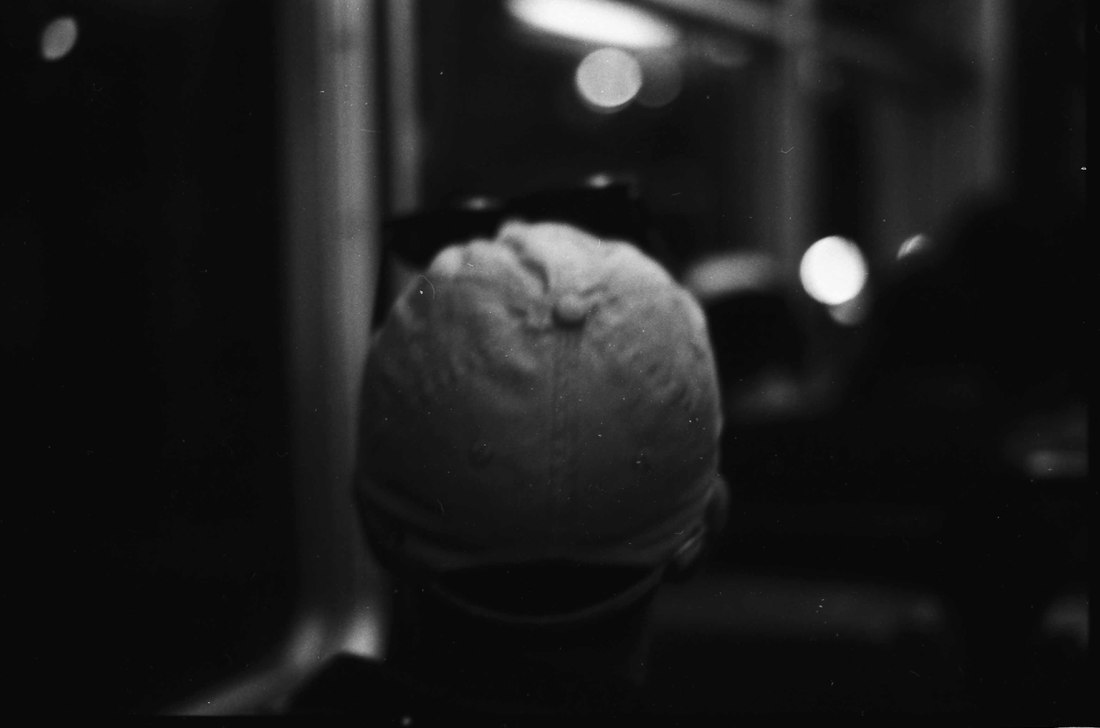
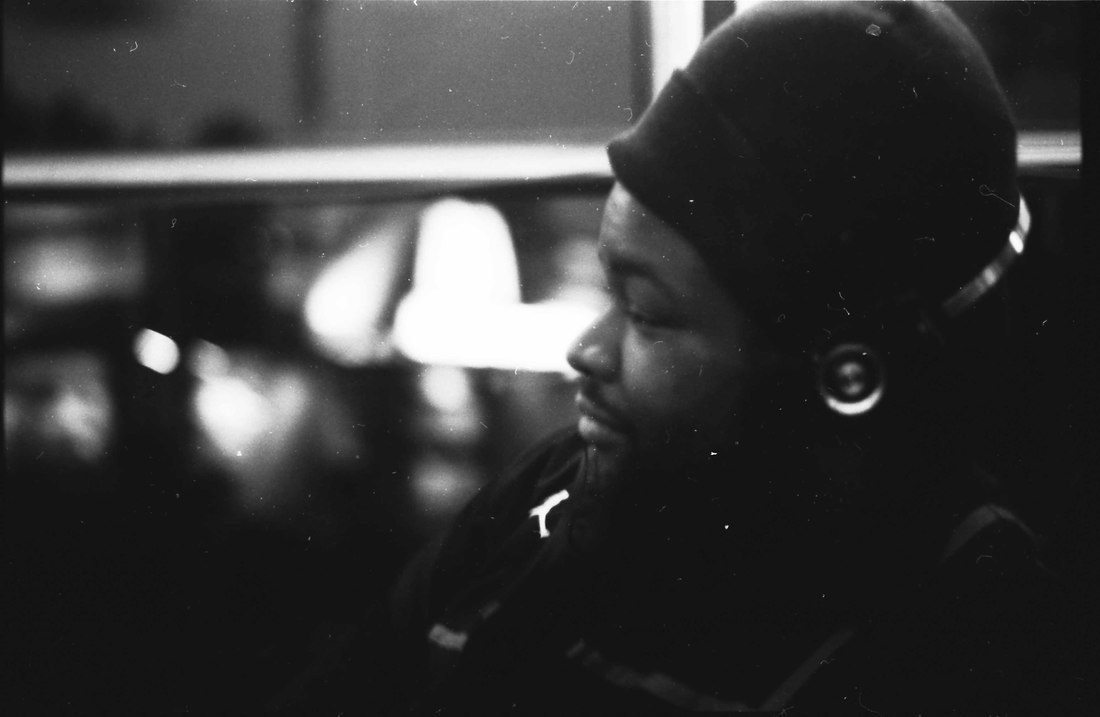
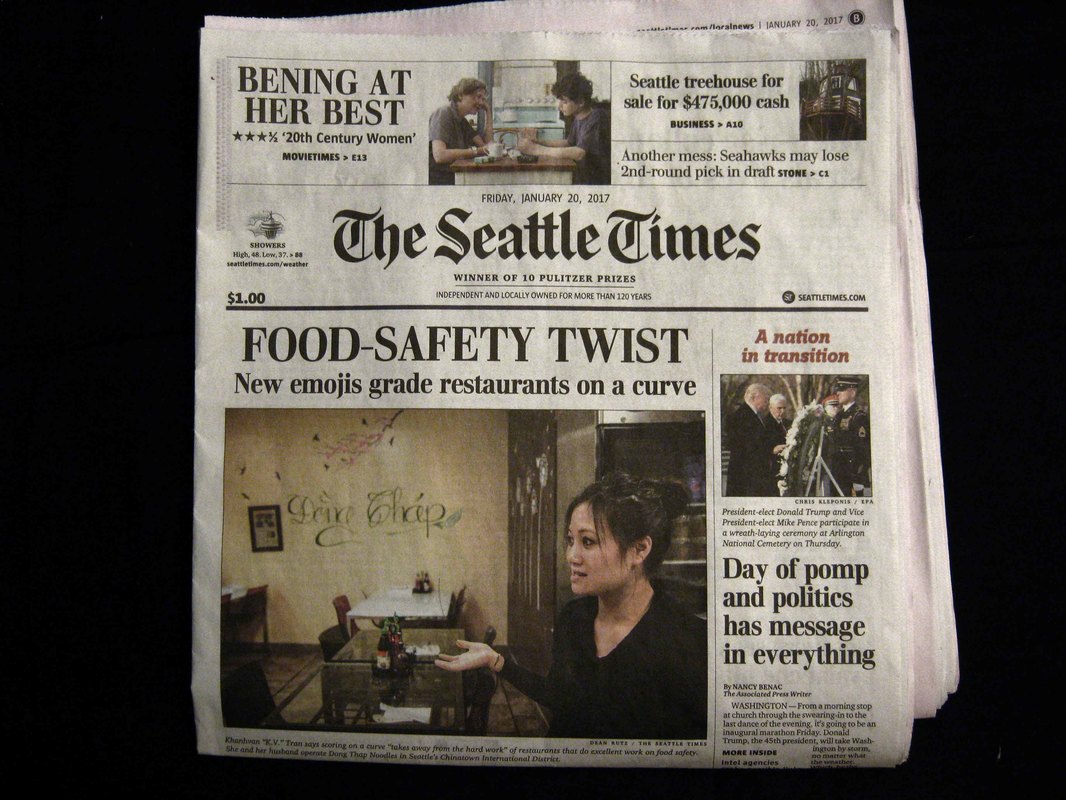
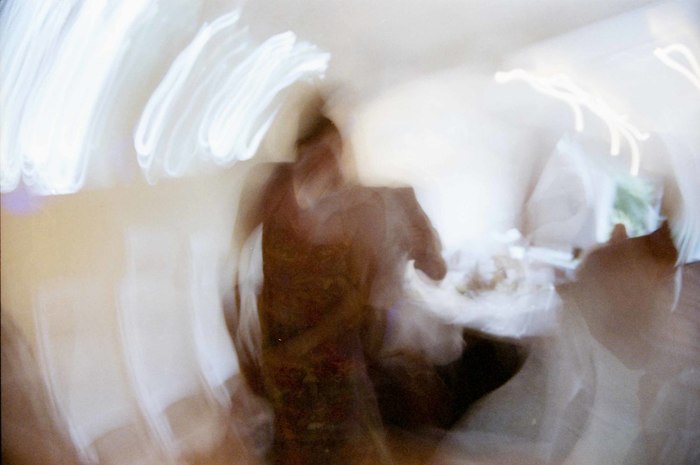
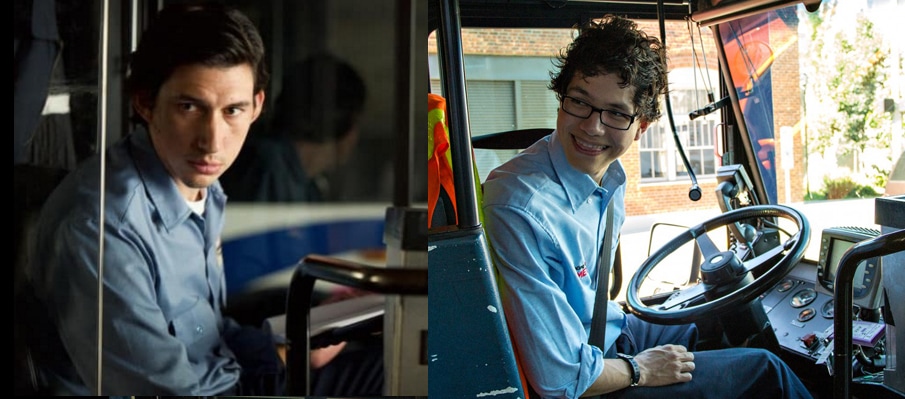
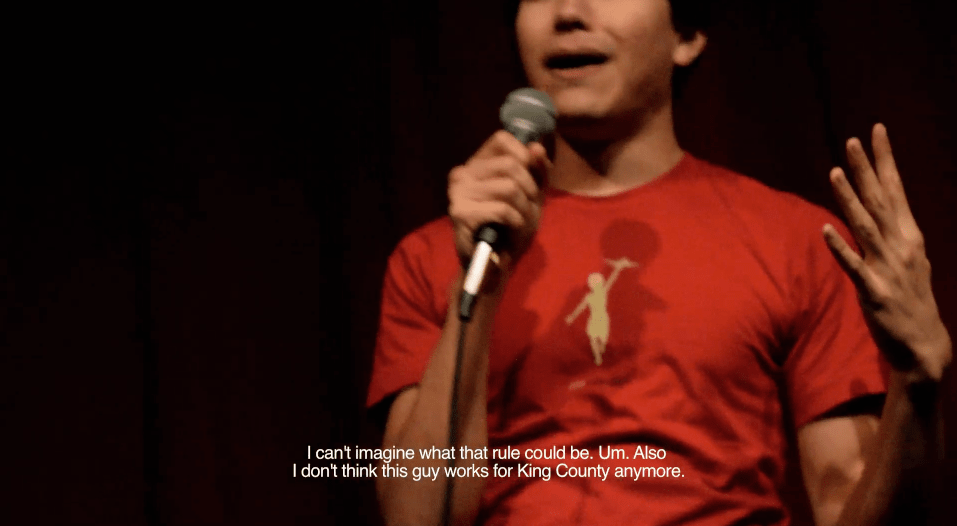
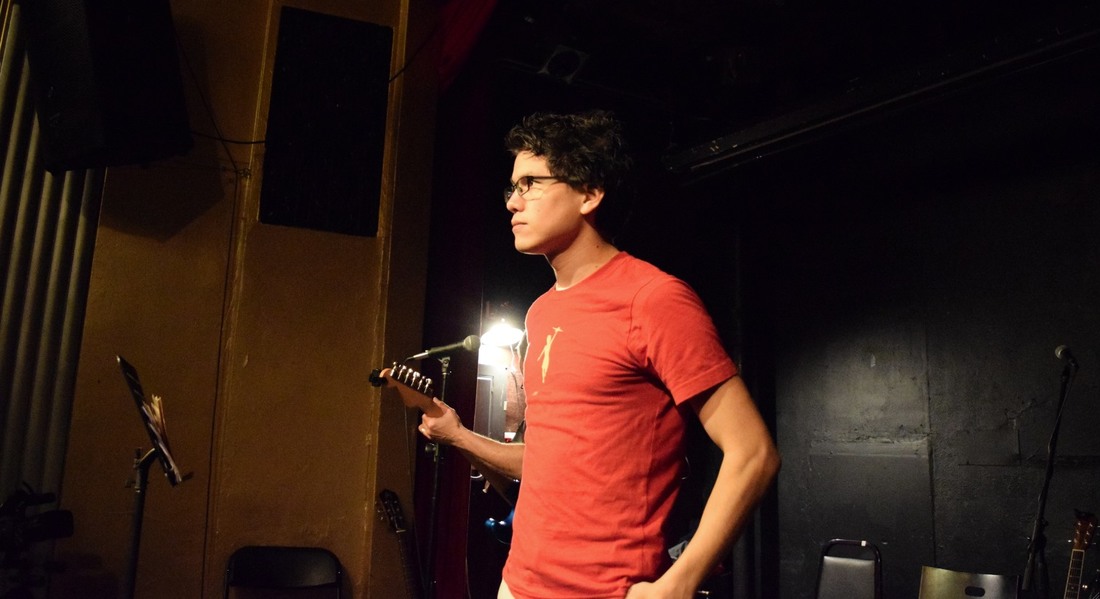

 RSS Feed
RSS Feed
